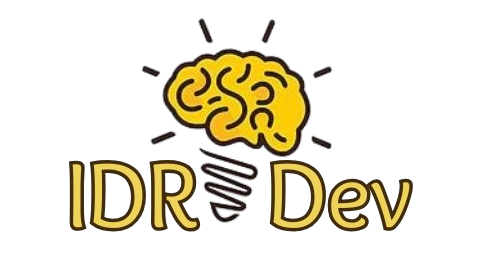Python Django & Flask Jobs: Your Ultimate Guide
The demand for Python developers, particularly those skilled in web frameworks like Django and Flask, is skyrocketing. This article provides a comprehensive overview of Python Django and Flask job opportunities, outlining the roles available, required skills, and potential career paths. Whether you are a seasoned developer or just starting, understanding the landscape of Django and Flask jobs is crucial for career advancement and success. Discover the exciting possibilities within the Python web development ecosystem and learn how to position yourself for rewarding opportunities.
Background: Django, Flask, and the Python Web Landscape

Before diving into specific job roles, it’s essential to understand the context of Django and Flask within the Python web development landscape. Python has become a dominant force in web development, data science, and machine learning, thanks to its readability, versatility, and extensive libraries. Django and Flask are two of the most popular Python web frameworks, each offering distinct advantages.
Django: The High-Level Web Framework
Django is a high-level Python web framework that encourages rapid development and clean, pragmatic design. Following the “batteries-included” philosophy, Django provides almost everything developers might need out of the box, including an ORM (Object-Relational Mapper), a templating engine, and a built-in admin interface. Django is ideal for building complex, data-driven web applications, and it enforces best practices for security and scalability.
Flask: The Microframework
Flask, on the other hand, is a microframework that offers a more minimalistic approach. It provides essential tools and libraries for building web applications but leaves the choice of components and architecture to the developer. Flask is lightweight, flexible, and well-suited for building APIs, single-page applications, and smaller, more focused web projects. Its simplicity makes it easy to learn and adapt to specific needs.
Why These Frameworks Matter for Jobs
The widespread adoption of Django and Flask in various industries has fueled the demand for developers proficient in these frameworks. Companies ranging from startups to large enterprises rely on Django and Flask to build their web applications, APIs, and internal tools. This creates a diverse range of job opportunities for Python developers specializing in these frameworks. A good understanding of either or both opens a wide array of possibilities.
Importance: Why Focus on Django and Flask Jobs?

Focusing on Django and Flask jobs is strategically important for several reasons. The demand for these skills translates to excellent career prospects, competitive salaries, and the opportunity to work on cutting-edge projects. Here’s why specializing in these frameworks can significantly boost your career:
High Demand and Competitive Salaries
Python consistently ranks as one of the most in-demand programming languages, and Django and Flask developers are particularly sought after. This high demand drives up salaries, making these roles financially rewarding. A skilled Django or Flask developer can command a competitive salary, reflecting the value of their expertise.
Diverse Range of Industries
Django and Flask are used in a wide range of industries, including e-commerce, finance, healthcare, and technology. This means that developers with these skills can find opportunities in various sectors, aligning their careers with their interests and values. Whether you’re passionate about building e-commerce platforms, financial applications, or healthcare solutions, Django and Flask can be the tools to make it happen.
Opportunity for Growth and Specialization
The Python web development ecosystem is constantly evolving, offering opportunities for continuous learning and specialization. Developers can specialize in areas like RESTful API development, database optimization, front-end integration, or cloud deployment. This allows for career growth and the chance to become an expert in a specific domain, further enhancing career prospects.
Open-Source Community and Resources
Django and Flask have vibrant open-source communities that provide extensive resources, including documentation, tutorials, and community support. This makes it easier for developers to learn, troubleshoot, and contribute to the frameworks, fostering a collaborative and supportive environment. Participating in the open-source community can also enhance your reputation and visibility, making you a more attractive candidate to potential employers. The Opensource.com community is a great place to learn and grow.
Benefits: What You Gain From Django and Flask Expertise

Having expertise in Django and Flask offers numerous benefits, both personally and professionally. These benefits extend beyond just securing a job and include continuous learning, career advancement, and the ability to contribute to meaningful projects. Here are some key advantages:
Enhanced Problem-Solving Skills
Working with Django and Flask requires developers to solve complex problems related to web application architecture, database design, and user experience. This enhances problem-solving skills and the ability to think critically, which are valuable assets in any software development role. Each framework presents unique challenges that force developers to think creatively and develop innovative solutions.
Improved Code Quality and Maintainability
Django and Flask encourage developers to write clean, well-structured code that is easy to maintain and extend. This promotes good coding practices and helps create robust and scalable web applications. By adhering to the principles of these frameworks, developers can produce code that is both efficient and readable, reducing the risk of bugs and making it easier for other developers to collaborate.
Increased Productivity and Efficiency
Django’s “batteries-included” approach and Flask’s simplicity enable developers to build web applications quickly and efficiently. This increased productivity translates to faster project delivery and reduced development costs. With Django, developers can leverage pre-built components and tools to streamline the development process, while Flask allows for a more customized approach, enabling developers to tailor the framework to their specific needs.
Greater Career Flexibility and Mobility
Skills in Django and Flask are highly transferable and valued across industries, providing developers with greater career flexibility and mobility. Developers can easily switch between different projects, companies, or even industries, knowing that their expertise is in demand. This adaptability is particularly valuable in today’s rapidly changing technology landscape.
Steps/How-to: Landing Your Dream Django or Flask Job

Landing a Django or Flask job requires a strategic approach that involves acquiring the necessary skills, building a strong portfolio, and networking within the Python community. Here’s a step-by-step guide to help you achieve your career goals:
1. Master the Fundamentals of Python
Before diving into Django or Flask, ensure you have a solid understanding of Python fundamentals, including data structures, control flow, object-oriented programming, and the Python standard library. This foundational knowledge is crucial for understanding the concepts and principles behind these frameworks. Dedicate time to practicing Python coding exercises and working on small projects to reinforce your understanding.
2. Choose Your Framework: Django or Flask (or Both!)
Decide whether you want to specialize in Django, Flask, or both. Django is ideal for building complex, data-driven web applications, while Flask is better suited for smaller, more focused projects. Understanding the strengths and weaknesses of each framework will help you make an informed decision. Consider your interests, career goals, and the types of projects you want to work on.
3. Learn the Framework Essentials
Once you’ve chosen your framework, focus on learning the essential concepts and components. For Django, this includes the ORM, templating engine, forms, and admin interface. For Flask, this includes routing, request handling, and template rendering. Explore the official documentation, tutorials, and online courses to gain a comprehensive understanding of the framework. Docsify-This can be used to generate quick web pages from markdown documentation.
4. Build a Portfolio of Projects
The best way to demonstrate your skills is to build a portfolio of projects that showcase your expertise in Django or Flask. Create web applications, APIs, or other projects that highlight your ability to solve real-world problems. Include a variety of projects to demonstrate your versatility and creativity. Make your portfolio publicly accessible on platforms like GitHub, and be sure to include detailed documentation and explanations of your projects.
5. Contribute to Open-Source Projects
Contributing to open-source projects is a great way to gain experience, learn from other developers, and build your reputation in the Python community. Find projects that align with your interests and skill level, and start contributing bug fixes, enhancements, or documentation. This demonstrates your commitment to continuous learning and your ability to collaborate with other developers.
6. Network with the Python Community
Attend meetups, conferences, and online forums to connect with other Python developers, learn about job opportunities, and build your network. Networking is essential for finding mentors, collaborators, and potential employers. Participate in discussions, ask questions, and share your knowledge. The Opensource.com community is a great place to connect.
7. Prepare for Technical Interviews
Technical interviews for Django and Flask jobs typically involve questions about Python fundamentals, framework concepts, database design, and problem-solving skills. Practice answering common interview questions, and be prepared to write code on the spot. Brush up on your data structures and algorithms, and be familiar with common design patterns. Consider doing mock interviews with peers or mentors to get feedback and improve your performance.
8. Tailor Your Resume and Cover Letter
Customize your resume and cover letter to highlight your skills and experience in Django or Flask. Emphasize your accomplishments, projects, and contributions to the Python community. Use keywords that are relevant to the job description, and tailor your application to each specific job opportunity. Highlight your ability to work in virtual or in-person event settings too.
Examples: Real-World Django and Flask Applications

To further illustrate the capabilities of Django and Flask, let’s explore some real-world examples of applications built using these frameworks:
Django: Instagram
Instagram, one of the world’s most popular social media platforms, relies heavily on Django. Django’s scalability and robustness make it ideal for handling the massive amounts of data and user traffic that Instagram processes every day. Instagram leverages Django’s ORM to manage its complex data model and its templating engine to render dynamic web pages.
Django: Pinterest
Pinterest, the visual discovery platform, also utilizes Django for its backend infrastructure. Django helps Pinterest manage its vast collection of images, videos, and other content, and it provides the foundation for its recommendation algorithms and search functionality. Pinterest’s success demonstrates Django’s ability to power large-scale, data-intensive applications.
Flask: Twilio
Twilio, the cloud communications platform, uses Flask to build its APIs and web services. Flask’s lightweight and flexible nature makes it well-suited for creating RESTful APIs that are easy to use and integrate with other systems. Twilio’s API is used by developers around the world to build messaging, voice, and video applications.
Flask: Reddit
Reddit, the social news aggregation and discussion website, uses Flask for some of its internal tools and microservices. Flask’s simplicity and ease of use make it a popular choice for building small, focused applications that complement Reddit’s larger infrastructure. Reddit’s use of Flask demonstrates the framework’s versatility and its ability to integrate with other technologies.
Strategies: Maximizing Your Chances of Getting Hired

Beyond acquiring the necessary skills and building a portfolio, there are several strategies you can employ to maximize your chances of getting hired for a Django or Flask job:
1. Specialize in a Niche Area
Consider specializing in a niche area of Django or Flask development, such as RESTful API design, database optimization, or front-end integration. This allows you to become an expert in a specific domain and differentiate yourself from other candidates. Specializing in a niche area can also increase your market value and make you a more attractive candidate to potential employers.
2. Obtain Certifications
Obtaining certifications in Python, Django, or Flask can demonstrate your expertise and commitment to continuous learning. While certifications are not always required, they can provide a competitive edge and validate your skills to potential employers. Look for reputable certification programs that align with your career goals.
3. Build a Strong Online Presence
Create a professional online presence by building a personal website, creating a LinkedIn profile, and actively participating in online communities. This helps you showcase your skills, connect with other developers, and attract the attention of potential employers. Share your projects, articles, and insights on social media to establish yourself as a thought leader in the Python community.
4. Practice Behavioral Interview Questions
Behavioral interview questions are designed to assess your soft skills, such as communication, teamwork, and problem-solving. Practice answering common behavioral questions using the STAR method (Situation, Task, Action, Result). Prepare examples from your past experiences that demonstrate your ability to work effectively in a team, overcome challenges, and achieve results.
Challenges & Solutions: Overcoming Obstacles in Your Job Search
The job search process can be challenging, but with the right strategies and mindset, you can overcome obstacles and achieve your career goals. Here are some common challenges and solutions:
Challenge: Lack of Experience
Solution: Focus on building a strong portfolio of projects that demonstrate your skills and potential. Contribute to open-source projects to gain experience and learn from other developers. Consider internships or volunteer opportunities to gain practical experience in a real-world setting.
Challenge: Competition
Solution: Differentiate yourself from other candidates by specializing in a niche area, obtaining certifications, and building a strong online presence. Network with other developers and attend industry events to learn about job opportunities and build your reputation.
Challenge: Technical Interviews
Solution: Practice answering common technical interview questions and be prepared to write code on the spot. Brush up on your data structures and algorithms, and be familiar with common design patterns. Consider doing mock interviews with peers or mentors to get feedback and improve your performance.
Challenge: Rejection
Solution: Don’t take rejection personally. Use each rejection as an opportunity to learn and improve. Ask for feedback from interviewers and recruiters, and use that feedback to refine your skills and approach. Stay persistent and positive, and don’t give up on your job search.
FAQ: Your Questions Answered
Q: What are the key differences between Django and Flask?
A: Django is a high-level framework with many built-in features, while Flask is a microframework that offers more flexibility and control.
Q: What skills are essential for a Django developer?
A: Strong Python skills, understanding of Django’s ORM, templating engine, and knowledge of web development concepts.
Q: What skills are essential for a Flask developer?
A: Solid Python skills, understanding of Flask’s routing and request handling, and knowledge of web development principles.
Q: How can I build a portfolio if I don’t have work experience?
A: Create personal projects, contribute to open-source projects, and participate in coding challenges.
Q: What are some common interview questions for Django/Flask jobs?
A: Questions about Python fundamentals, framework concepts, database design, and problem-solving skills.
Conclusion: Embark on Your Python Web Development Journey
The world of Python Django and Flask jobs is full of opportunities for skilled and passionate developers. By mastering the fundamentals, building a strong portfolio, and networking within the community, you can position yourself for a rewarding and fulfilling career. Remember to stay persistent, embrace continuous learning, and never stop exploring the exciting possibilities within the Python web development ecosystem.
Ready to take the next step? Start building your Django or Flask portfolio today and unlock your potential in the world of web development!

